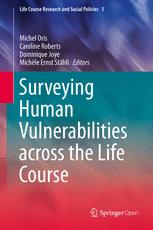

Most ebook files are in PDF format, so you can easily read them using various software such as Foxit Reader or directly on the Google Chrome browser.
Some ebook files are released by publishers in other formats such as .awz, .mobi, .epub, .fb2, etc. You may need to install specific software to read these formats on mobile/PC, such as Calibre.
Please read the tutorial at this link: https://ebookbell.com/faq
We offer FREE conversion to the popular formats you request; however, this may take some time. Therefore, right after payment, please email us, and we will try to provide the service as quickly as possible.
For some exceptional file formats or broken links (if any), please refrain from opening any disputes. Instead, email us first, and we will try to assist within a maximum of 6 hours.
EbookBell Team

5.0
20 reviewsThis open access book details tools and procedures for data collections of hard-to-reach, hard-to-survey populations. Inside, readers will discover first-hand insights from experts who share their successes as well as their failures in their attempts to identify and measure human vulnerabilities across the life course. Coverage first provides an introduction on studying vulnerabilities based on the Total Error Survey framework. Next, the authors present concrete examples on how to survey such populations as the elderly, migrants, widows and widowers, couples facing breast cancer, employees and job seekers, displaced workers, and teenagers during their transition to adulthood. In addition, one essay discusses the rationale for the use of life history calendars in studying social and psychological vulnerability while another records the difficulty the authors faced when trying to set-up an online social network to collect relevant data. Overall, this book demonstrates the importance to have, from the very beginning, a dialogue between specialists of survey methods and the researchers working on social dynamics across the life span. It will serve as an indispensable resource for social scientists interested in gathering and analyzing data on vulnerable individuals and populations in order to construct longitudinal data bases and properly target social policies.